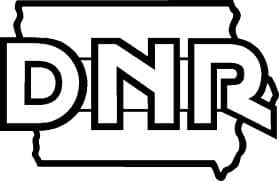Plan to Restore Black Hawk Lake Topic of Aug. 30 Public Meeting in Iowa
Iowa Department of Natural Resources 08.26.12

The Iowa Department of Natural Resources will discuss its plans to renovate the fishery in Black Hawk Lake during a public meeting on August 30, at 6:30 p.m., at the American Legion Hall, in Lake View.
Black Hawk Lake is in the early stages of a major watershed and lake improvement and restoration effort to improve the water quality and clarity and remove the lake from the Impaired Waters List. Black Hawk Lake is listed on the state’s Impaired Waters List for algae, turbidity, and bacteria.
The major focus of the lake restoration project has been targeted at improving the watershed. Local landowners, stakeholders, and other citizens have made great advances in reducing the amount of sediment and nutrient loading into the lake.
While improvements can still be made to the watershed, the internal recycling of nutrients and re-suspension of sediments via rough fish activity still contribute significantly to the water quality issues.
The current drought conditions have presented a unique opportunity for a successful fishery renovation that will eradicate rough fish species, help improve water quality, and reclaim the lake so that a quality sport fishery can be established. This will be one of the largest fish renovations in the past 25 years.
The Legion Hall is located at 310 Main Street, in Lake View.

